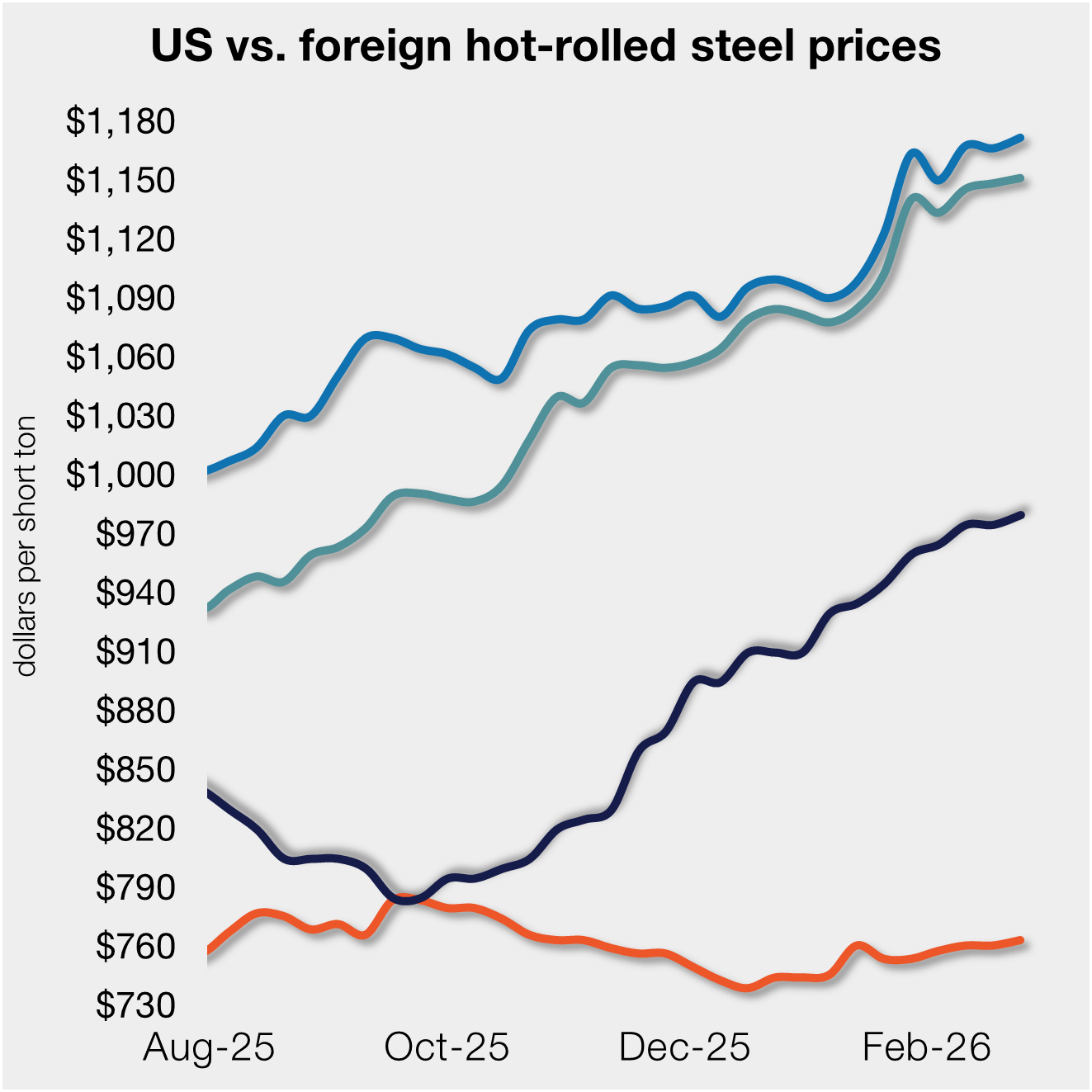Prices

December 22, 2016
Ferrous Scrap Availability Could be "Tight" if Turkish Mills Enter Market
Written by John Packard
Since Tuesday Steel Market Update has received more input regarding the ferrous scrap markets and what we may be looking at regarding negotiations as we head into the month of January.
We asked a couple of questions to World Steel Dynamic’s scrap guru, Mike Markley and this is what he told us:
Initial thoughts are whether this cargo bought by a Turkish steelmakers on Friday is a one-off sale. I’m not aware of any new deals yet, but traditionally the Turkish mills have bought four or five cargoes or as many as 10 cargoes within a few days of each other. Obviously this would include purchases from several European and Baltic exporters as well those on this side of the Atlantic.
In the past, major exporters like Hugo Neu Corp. would amass enough scrap, say, 100,000 tonnes, to fill two or three ships. These days, few scrap companies have the financial wherewithal to do that. This is especially true for the publically owned exporters like Simsmetal and Schnitzer.
If this is a buying binge by the Turks, they may be hoping to obtain the tonnage commitments from the U.S. exporters before the next round of steel mill buying begins here in the first week of January. Most of the domestic mills and their brokers are already conceding that ferrous scrap prices will be up by $20 per ton in January, possibly more. In fact, several mills failed to cover all of their needs for this month. Some mills in Ohio are still shopping for scrap and had to pay $290 or more for remote supplies. One of those deals involved shredded scrap from a New England exporter. That sale by an exporter into the domestic market may have spurred the Turks to buy now from the U.S. or risk losing more tons. They had not bought a pound on this side of the Atlantic since mid-November.
Why? Several reasons. U.S. exporters wanted $300 per tonne CFR for 80/20 heavy melt. (They got pretty close to that with this deal at $296.) But that meant at least a $25 per tonne price hike that the Turks could not accept. Also, the strength of the U.S. dollar versus the Euro and the Turkish lira made U.S. scrap more expensive. They found cheaper scrap in Europe, but I think they have exhausted those supplies now. Last week they had to pay a European supplier $295 per tonne for shredded.
In the U.S. exporters’ eyes, scrap even at $300 per tonne is still a bargain versus billet from Russia. Russians are asking for $405 per tonne for their billets. Add another $10 from shipping costs across the Black Sea. With billet at $415-420 per tonne versus scrap at $300, figure conversion cost to go from scrap to billet at $100 per tonne. So scrap is about $20 per tonne cheaper. And there s no cheap Chinese billet these days.
The tougher question is what impact a Turkish buying binge will have on the U.S. obsolete scrap supplies at this time of the year. They could siphon off enough heavy melt in key coastal areas. As a result, instead of up $20 per ton in January, we could see prices climbing by as much as $50 per ton if we see the domestic mills mills bidding against the exporters for heavy melt and shredded feedstock. Keep in mind also the winter weather and the its impact on both scrap collection and processing. Below 10 degrees F, nobody wants to work outdoors cutting up scrap and equipment breaks down more frequently when it’s that cold.
SMU Note: Right now the signs are “bullish” for sellers of domestic ferrous scrap to the steel mills for January and could very well be bullish again in February.







